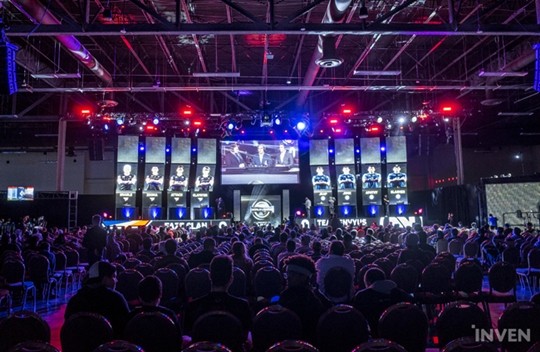
‘Hack’ is a general term for any hacking program, and in the gaming field it means hacking and modifying the gaming program to work a certain different way. ‘Map Hack,’ which clears up the foggy battlefield to provide a view of the surroundings that could not be seen originally, is the most commonly known type of hack, but a plenty of other hacks exist in different games.
Such hacks are, regardless of game genre, considered illegal and users who are caught using hacks may lead to penalties such as getting permanently banned from playing the game. The game developers are thus responsible for stop the usage of hacks in game, so that the regular players are not at a disadvantage because of a few hack users. Despite their efforts, in-game hacks still exist and are distributed through various methods.
PlayerUnknown’s Battleground (PUBG), one of the most popular games at the moment, is not an exception. As an FPS game, PUBG has lots of different hacks that continued on from earlier generations’ FPS games. Localization hacks that show other players’ locations, aim hacks(aim-bot or auto-aim) that fix the user’s aim exactly at the others, speed hacks that allow the users to move faster than others, and wall hacks that let the user able to kill the others through the wall are all different examples of PUBG hacks. Such hacks are, even right at the moment, allowing their users to take unfair advantage of the normal players.
Hacks are also used widely even in the field of eSports. Such unbelievable and outrageous problem has continued on since quite a while ago.
# The Unending Rise of Hack Issues in FPS eSports
It is normally expected that the starting line is equal and fair for everyone in game. The developers spend thousands of hours trying to figure out a way to keep the in-game balance, and apply any modifications in new patches. While it may not be perfect, they try their best to make the game fair for everyone. Users, then, compete with other users of about the same skillfulness according to their levels.
Interfering with such efforts is the hacks mentioned above. Especially in FPS games, hacks bring about dramatic improvements to one’s play. Two most important factors of one’s performance in FPS games are fast hands and accurate aims, as the game requires that players use their mouse to move their aim displayed on the screen to the enemy and attack. What if those plays that require much delicacy is done by an AI and not the user? The gap in between the plays would be impossible to close.
Hacks have raised many issues in the FPS genre itself, but the issues were even greater as such hacks were introduced to the eSports field – it is as if a soccer player is running in an official match with human speed and power-exceeding, AI-level legs equipped. However, it is incredibly hard to catch the professional players that use hacks, because of the complexity and details of how the hacks are designed and used.
Earlier in the FPS eSports era, problematic plays and/or scenes in a tournament match was mostly due to in-game bugs. Even if for a questionable play that seem like hacks, the community did not think there would be hack usages in official tournaments. They simply thought of it as just “another bug that was not seen before.”

However, the problem arose as FPS eSports draw more attention and the size of the league started getting bigger. Tournaments of various FPS games including Counter Strike, Sudden Attack, Couter Strike: Global Offensive (CS:GO) as well as PUBG have all experienced some problems with hacks. Most of these issues took place in online tournaments instead of offline, and conclusions of a few issues are still in controversy.
Hack usage issues are an endless problem in international CS:GO tournaments. Such was the case for ‘K0nfig,’ a former Team Dignitas player, and ‘Flusha,’ of Fnatic. Videos of their plays at tournaments swept the online community. The videos did have some scenes in which hack usage was suspected. They did show quite extraordinary plays every now and then, such as when the aim suddenly and swiftly move to an enemy’s head or when a shot landed right on an enemy who is behind a wall.
▲ Source: YouTube Channel ‘unn’
▲ Source: YouTube Channel ‘cubeR’
In the past, a player from NiP was suspected of mouse driver hack. It was believed that he had planted a hack into his mouse driver system when playing at a tournament. While nothing suspicious took place during the tournament, the issue arose when the programmer who made the hack uploaded a relevant video on YouTube. Things got quiet after a while and the case concluded as something along the line of ‘not enough evidence.’ While the tournament hosts have not made any official announcement about the issue, many international offline tournaments adapted a new regulation of checking each player’s mouse driver after the issue.
Even within Korea there was an issue with using hacks on a tournament. Player A, a former professional CS:GO player, was caught using hacks. Once a well-known and recognized rookie, he eventually switched into a professional Sudden Attack player and has later admitted and apologized for his mistakes from the past.

Hack issues extended even to PUBG, whose eSports tournaments was founded only recently. During the North American server’s qualifiers game in IEM Oakland, in which ‘Miccoy’ of Ghost Gaming took the first place, the suspicion arose. According to the video that the issue was around, Miccoy hid himself in a building and inspected the fields outside the window, and then targeted and shot the head of an enemy who seemed to be on the other side of the hill. In addition, he precisely targeted the head of another enemy hiding in a small shack.
▲ Source: YouTube Channel ‘TeamGetfight - CS:GO & PUBG’
# ‘Skills or Hacks?’ Players Prove the Suspicions Wrong
As so many issues arise about players’ using hacks in tournaments, the fans of FPS eSports brought it up even when a barely suspicious play is observed. Such reaction meant that they have lost their trust in the players so much. The scenes that were once considered a super play by the player are simply called hacks nowadays.
Various communities were bombarded with posts and discussions analyzing different videos with hack-suspicious plays. In some extreme cases, fans were too outraged about such incidents and showered the players with insults and verbal abuse. The problem is that, despite some cases in which the hack usages were proven to be true, there are many more cases in which they were not.

Because of these situations, some players decided to directly face the issues that surround them. A former CS:GO player of Cloud 9, ‘Shroud,’ played the video of his “suspicious” plays during his personal stream and explained each part of the play that the video pointed out. However, because no clear and official decisions have been made regarding whether he used hacks or not, the suspicion around him still remains.

Se-Yeon “Geguri” Kim, a professional Overwatch gamer who has played as a member of ROX Orcas until recently, has taken a more direct response than Shroud did. In the past when Overwatch had just came out, Geguri was in the very center of hack suspicion. During the Korean national representative selection match in Overwatch Nexus Cup, her impressive plays of focusing Zarya’s aim exactly on her teammates brought about comments asking whether she is using hacks. Despite Blizzard’s official feedback assuring that the observer mode’s display may not be so accurate, many fans showed extreme anger.
Geguri then freed herself out of the suspicion by actually coming to Inven’s broadcasting station and showing off her skills that go beyond the plays seen in the analysis videos. The fans, impressed and convinced by her amazing plays, then started defending her from the angry fans who verbally abused her. Overall, her bold decision to come on a broadcast was able to get her out of false accusations and aggressive comments.
# The Community Longs for Stronger Regulations and Quicker Response to Hacks
Due to the characteristic of the games, many FPS eSports tournaments take place online. Because of that, it is hard to find out whether a professional gamer has used hacks or not during the tournament. With such conditions given, if any suspicious play shows up the FPS games’ fan community would again assume that the same thing happened, and criticize the player for it.
Thankfully, some of the big tournaments have been responding to in-game hack usages quickly and with strict and detailed regulations. During some CS:GO tournaments in other regions, some players were banned and kicked out in the middle of a match because hack usage was detected. The chats window for the broadcasting platform were filled with confusion and anger, and the casters were also surprised. Despite the inconvenience, the community was still relieved to see that the in-game hack detector and banning system have worked efficiently.
However, because hack usage in official tournaments is a critical and unforgivable violation of rules, any action must be responded with more powerful and strict regulations. Only then would the players who have considered using hacks in game fear the outcome and decide not to do so, and the community would be able to trust the developers and tournament hosts to react to any suspicious activities.
Not every player can react to issues surrounding him or her the way Geguri once did. While boldly facing the issue may put an end to the controversy, failing to convince the crowd may lead to even more suspicion and criticism among the fans. However, it is also problematic for a player to take no action about it. Even if one did not actually use hacks in-game, being doubted and criticize may greatly affect the player’s mentality during practice and or tournament matches.
That is why it is extremely important for the game developers and tournament hosts to respond to such problems immediately with strong regulations. While many tournaments do have regulations regarding using hacks during tournaments, they must strengthen the regulations and abide strictly to them. Otherwise, the field of FPS eSports will forever be holding a time bomb called hack issues in their arms.
Sort by:
Comments :0







